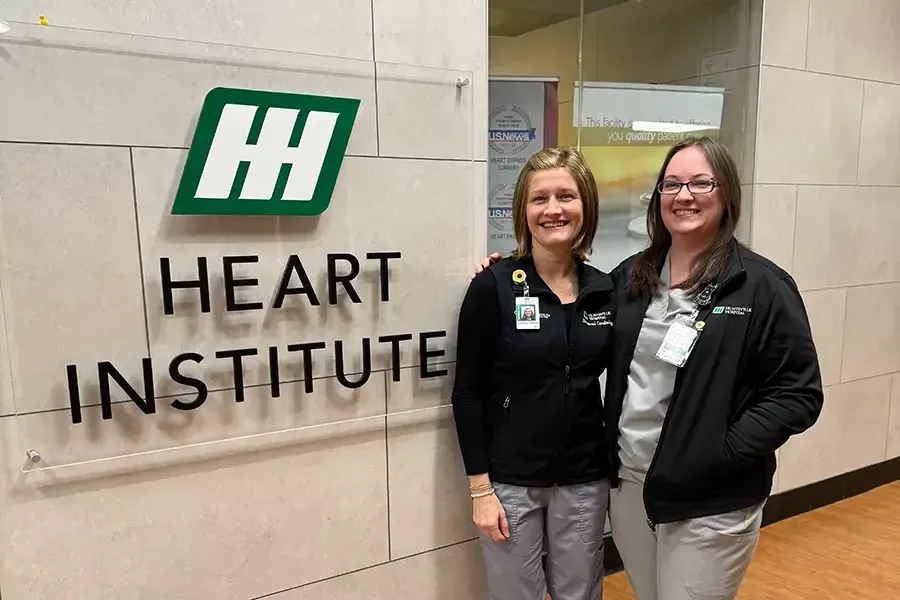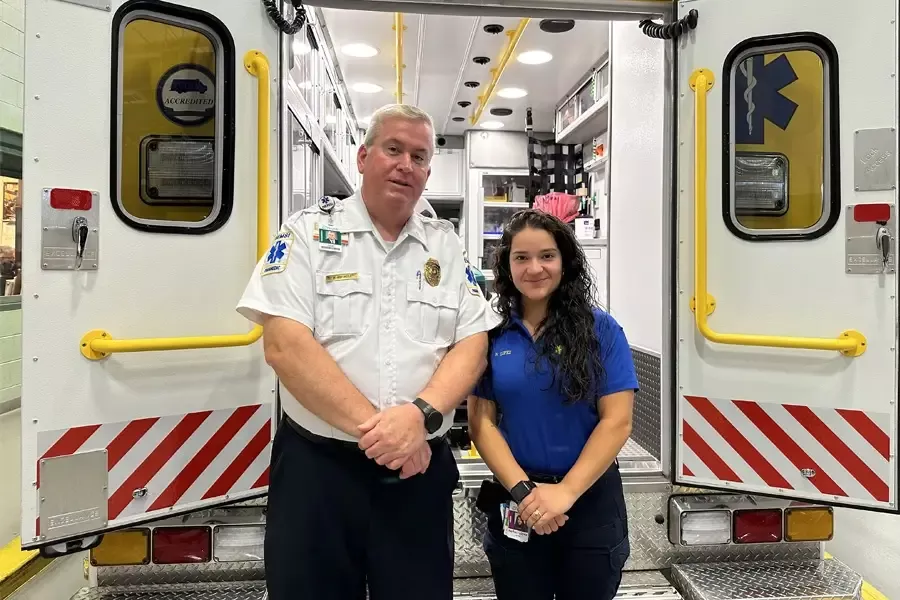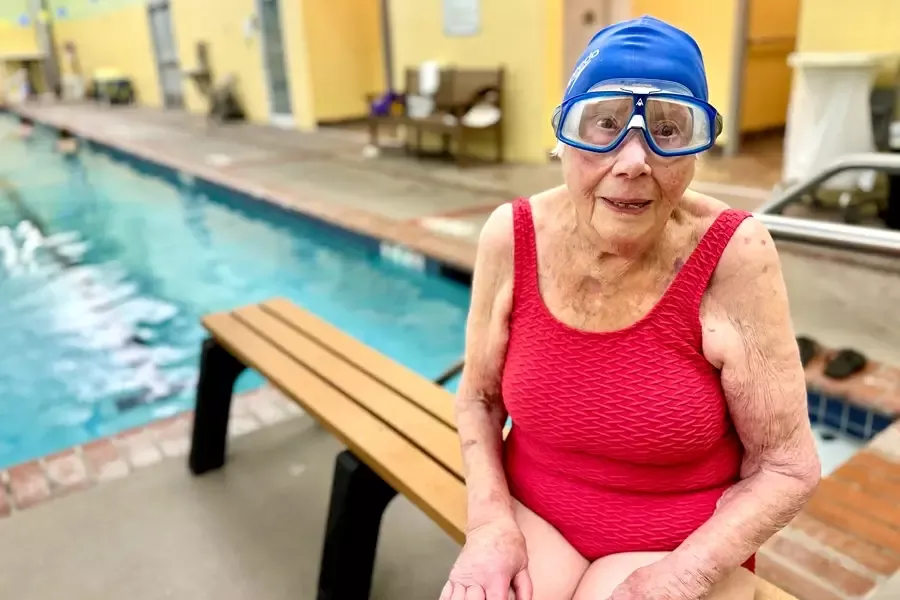
In the hustle and bustle of daily life, unexpected moments can turn seemingly ordinary people into heroes. This holds true for two HH Health nurses who recently put their skills to the ultimate test.
Christy Cantey and Meghan Dunning, who both work for The Heart Center’s Structural Heart Program, never anticipated the turn of events awaiting them while returning home from a work trip in December. Walking toward their gate at the Dallas/Fort Worth International Airport, the nurse practitioners stumbled upon an elderly woman in desperate need of help – she was in full cardiac arrest.
Without a moment’s hesitation, Cantey and Dunning sprang into action, drawing on their training and experience to help the stranger regain her pulse just as emergency medical technicians (EMTs) arrived. Their swift thinking and selfless actions undoubtedly helped save the woman’s life.
“By the time she got to the hospital, she was awake and talking,” Cantey said. “We just did what we were trained to do, and luckily we were able to get her pulse back and she’s now doing OK.”
A ‘humbling’ experience
The life-saving duo quickly assessed the situation and initiated cardiopulmonary resuscitation (CPR) on the woman, but they didn’t stop there. They also used a nearby automated external defibrillator (AED) to restore the rhythm of her heart.
Although neither nurse paused for even a second, Dunning said the lack of resources at the airport was a challenge.
“In the hospital, we have absolutely everything we need at our disposal, from existing IV access to point-of-care ultrasound to highly trained medical specialists with decades of experience,” she said. “But in that moment, Christy and I only had each other and a basic AED. … We both kept calling for things we didn’t have on hand. It was an incredibly humbling experience.”
Dunning and Cantey, both nursing graduates of the University of Alabama in Huntsville (UAH), said the experience is a stark reminder of the importance of CPR training and certification.
Every second matters
According to the American Heart Association, 436,000 Americans die from a cardiac arrest each year. Globally, cardiac arrest claims more lives than colorectal cancer, breast cancer, prostate cancer, influenza, pneumonia, auto accidents, HIV, firearms and house fires combined.
The good news? In situations where each second counts, CPR can double or even triple a person’s chances of survival during cardiac arrest when bystanders take action. That means you don’t have to be a heath care worker or emergency responder to make a difference.
“Anybody with basic life support (BLS) certification and steady nerves could have handled that situation (in the airport) just as well,” Dunning said. “It was lucky that we were right there when it happened, but anybody with proper CPR training could have jumped in and made the save.”
Get certified
The two most common types of CPR include:
-
Hands-only CPR, which is easy to do and takes just a few minutes to learn. The process involves calling 911, having someone retrieve an AED if available and then giving continuous chest compressions until help arrives. No mouth-to-mouth necessary!
-
CPR with rescue breaths, also known as “full CPR.” Requiring both chest compressions and rescue breaths, this CPR is ideal for people of all ages, such as children, infants or others experiencing cardiac emergencies.
Huntsville Hospital’s Corporate University is the home of north Alabama’s largest certified American Heart Association (AHA) Training Center. The Training Center staff provides a full range of CPR and life-saver courses to both hospital employees and the community.
Click here to learn more about getting certified.
Be a lifesaver
Cantey and Dunning hope their story will inspire others to learn the skills needed to respond to an emergency and help save a life.
“You could be someone’s only chance at survival,” Cantey said. “It could be your mom, your dad, even your child.”
Dunning said trading a few hours of time to get CPR certified is such a “small thing” to do to perform a life-saving procedure when it’s needed most.
“I can’t think of anything more valuable than that,” she said.


